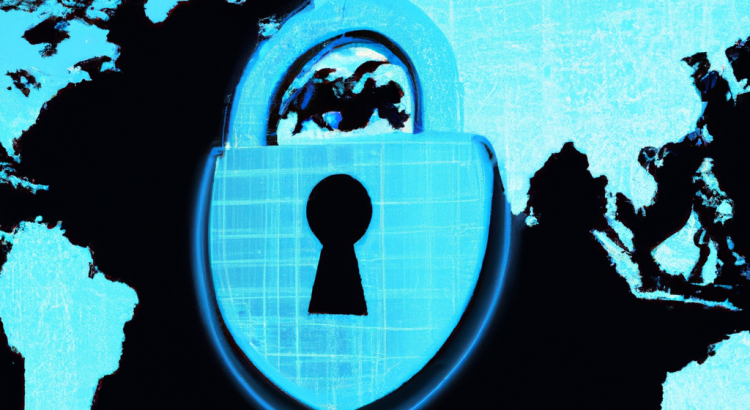In today’s digital age, protecting your financial information is more crucial than ever. Hackers are constantly on the prowl, looking to exploit vulnerabilities and steal sensitive data such as bank account details and credit card information. One of the most effective ways to safeguard your financial details is by using a Virtual Private Network (VPN). In this article, we will delve into how VPNs can protect your financial information, why they are essential for securing bank accounts and credit cards, and how they keep your data secure. By the end of this piece, you’ll have a better understanding of the importance of utilizing a VPN to shield your financial information from potential threats.
1. “Securing Your Finances: How VPNs Protect Your Financial Details”
When it comes to safeguarding your financial information online, utilizing a VPN (Virtual Private Network) is crucial. VPNs enhance your online security and privacy by creating a secure, encrypted connection to the internet. This means that any data transmitted between your device and the internet is scrambled, making it extremely difficult for hackers or third parties to intercept and access your sensitive information.
One of the primary ways VPNs protect your financial details is by masking your IP address. Your IP address reveals your online identity and location, making it easier for cybercriminals to track your online activities and potentially steal your financial information. By using a VPN, your real IP address is hidden, and instead, your connection appears to be coming from a server in a different location. This adds an additional layer of security to your online transactions, helping to protect your bank accounts and credit cards from being compromised.
Additionally, VPNs encrypt your data as it travels between your device and the internet, ensuring that no one can intercept and read your financial information. This encryption is especially important when using public Wi-Fi networks, which are notorious for their lack of security and susceptibility to hackers. With a VPN, you can confidently access your online banking accounts or make purchases online without worrying about cyber threats.
In conclusion, securing your finances with a VPN is a smart and proactive measure to take in today’s digital age. By using a VPN to protect your financial details, you can enjoy peace of mind knowing that your sensitive information is safe and secure from cyber threats. So, don’t wait any longer — invest in a reliable VPN service today and safeguard your bank accounts and credit cards from potential cyberattacks.
2. “The Importance of Using a Virtual Private Network for Bank Accounts and Credit Cards”
When it comes to protecting your financial information, using a Virtual Private Network (VPN) is crucial, especially when it comes to your bank accounts and credit cards.
A VPN creates a secure and encrypted connection between your device and the internet, ensuring that your online activities are private and protected from potential threats such as hackers, identity thieves, and data breaches. This is especially important when accessing sensitive information like your financial details.
Using a VPN when accessing your bank accounts or making transactions with your credit cards adds an extra layer of security by masking your IP address and encrypting your data. This makes it much more difficult for cybercriminals to intercept your information and potentially steal your money or commit fraud.
In today’s digital age where cyber threats are becoming increasingly common, it’s more important than ever to safeguard your financial information. By using a VPN, you can protect your bank accounts and credit cards from unauthorized access and keep your sensitive data secure. Don’t take any chances when it comes to your finances – invest in a reliable Virtual Private Network today.
3. “Safeguarding Your Financial Information: How VPNs Keep Your Data Secure”
In today’s digital age, it’s more important than ever to safeguard your financial information from hackers and cyber criminals. One effective way to protect your data is by using a Virtual Private Network (VPN).
VPNs encrypt your internet connection, making it virtually impossible for anyone to intercept your data. This is crucial when it comes to accessing sensitive information such as your financial details, bank accounts, and credit cards online.
When you connect to a VPN, your data is routed through a secure server, which acts as a shield between your device and the internet. This means that even if a hacker were to intercept your connection, they would only see encrypted data that is impossible to decipher without the proper decryption key.
In addition to encryption, VPNs also hide your IP address, making it harder for websites and online services to track your online activities and potentially compromise your financial information.
Overall, using a VPN is a simple yet effective way to enhance the security of your financial data online. By taking this extra precaution, you can minimize the risk of falling victim to identity theft, fraud, or other cyber threats that could have serious consequences for your financial well-being.

